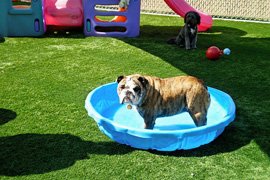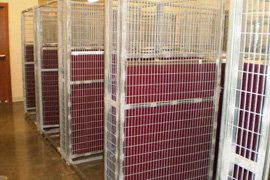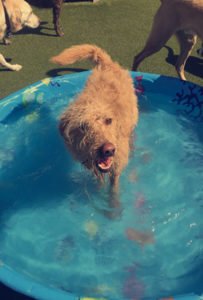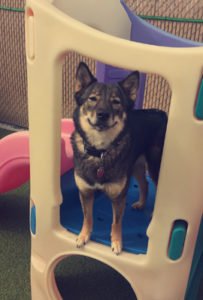Frequently Asked Questions
Items recommend to bring in while your dog is boarding: leash with harness or collar, food is highly recommended, and medication if currently taking any.
We cannot be held responsible for any items brought in to Diggin’ Inn Pet Resort.
WHAT ARE YOUR HOURS?
- Monday – Friday from 7:00 am to 7:00 pm
- Saturday from 8:00 am – 1:00 pm
- Sunday for Pickups from 5:30 pm – 7:00 pm
- Please see our contact page for a map and directions.
- Rabies & Distemper Parvo as required by your city.
- Bordetella (Kennel Cough) every 6 months. Atleast one dose per year should be the intranasal form as it is more effective.
- A form of flea & tick control.



Drinking Excessively
You bring your furry friend home, and he won’t stop drinking. You wonder when was the last time he drank? Did he have access to water? Yes, he absolutely had access to water. Dogs drink more when they get home for many reasons. Comfort, excitement or stress from the car ride home. Make sure they have access to water but don’t let them drink too much as it will make them sick. Let them drink a reasonable amount and settle back in before returning to their regular drinking habits.
Change in Diet
They may eat their food very quickly when they get home. Again you wonder did they eat while they were away? Again, yes. Same with water over-excitement of seeing you and being back may change their normal behavior. Don’t feed them right away. Let them settle back in and eat a few hours after returning home.
Change in Personality
Your dog may ignore you or become extra needy when you get home. Both are normal behavior. After the initial excitement of seeing you wears away, they may give you the cold shoulder for a day or they may be so happy you returned for them that they don’t want to leave your side.
Change in Stool or Vomiting
All this excitement or stress may result in your dog’s stool to be soft or loose. If you switched your dog to the facilities food and back to yours in a short period they might just be readjusting. Some dogs have more sensitive stomachs than others; the changes don’t affect some while it makes a significant difference in others. Additionally, if your dog is vomiting it could be for the same reason, or it drank too much water or ate too fast. Fast your dog for 12 hours and if it persists for more than two days contact your veterinarian. If there is blood also contact your veterinarian, these could be signs of a different issue.
Change in Sleep
If they got playtime or daycare and were playing around for hours more than they usually do combined with a new place, smells, and friends your dog will be tired. Your dog will most likely come home and sleep very soundly for a day or two.
- Just as human colds may be caused by many different viruses, kennel cough itself can have multiple causes. One of the most common culprits is a bacterium called Bordetella bronchiseptica which is why kennel cough is often called Bordetella. Most dogs that become infected with Bordetella are infected with a virus at the same time. These viruses, which are known to make dogs more susceptible to contracting Bordetella infection, include canine adenovirus, canine distemper virus, canine herpes virus, parainfluenza virus and canine reovirus.
- Dogs “catch” kennel cough when they inhale bacteria or virus particles into their respiratory tract. This tract is normally lined with a coating of mucus that traps infectious particles, but there are a number of factors that can weaken this protection and make dogs prone to kennel cough infection, which results in inflammation of the larynx (voice box) and trachea (windpipe).
- The classic symptom of kennel cough is a persistent, forceful cough. It often sounds like a goose honk. This is distinct from a cough-like sound made by some dogs, especially little ones, which is called a reverse sneeze. Reverse sneezes can be normal in certain dogs and breeds, and usually only indicates the presence of post-nasal drip or a slight irritation of the throat.
- Some dogs with kennel cough may show other symptoms of illness, includingsneezing, a runny nose, or eye discharge.
- If your dog has kennel cough, he probably will not lose his appetite or have a decreased energy level.
- Kennel cough is contagious. If you think your dog might have the condition, you should keep him away from other animals and contact your veterinarian. Please inform us if your pet has been diagnosed with or is showing signs of the condition as we want to prevent it from spreading as quickly as possible.



- Puppy warts are small bumps between a dog’s lips and gumline, or on its tongue. They are caused by the Canine Papilloma Virus and are typically benign. The warts look like pale pink raspberries or little pieces of cauliflower and can be compared to chicken pox in humans, because once a dog is exposed to the virus and warts develop, the dog usually does not get them again.
- Puppy warts are usually seen in dogs under 2 years old because their immune systems are less effective. The virus is transferred by dogs touching noses or through saliva when they share toys. It is virtually impossible to prevent puppy warts, because the virus is contagious up to two weeks before an actual wart appears.
- Puppy warts usually go away in about six weeks, and veterinarians typically do not prescribe medication unless the warts remain for six months or longer. Occasionally when the number of warts makes it difficult for a dog to eat, a vet may surgically remove them. Canine Papilloma Virus is not a serious health risk and is often considered a rite of passage that many pups go through before reaching adulthood.
